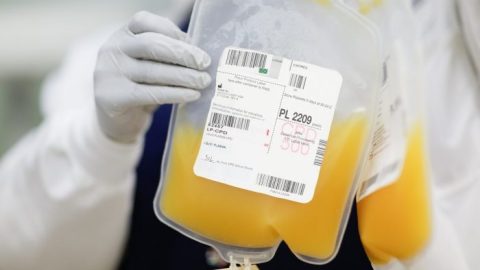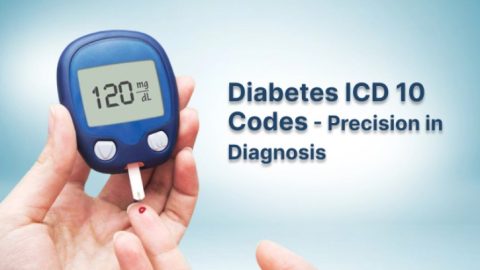Gestational diabetes is a condition that occurs during pregnancy when blood sugar levels become elevated and the body cannot produce enough insulin to manage glucose effectively. For many expectant mothers, the diagnosis brings concern, questions, and sometimes resistance to recommended treatments such as insulin therapy. A common and sensitive question is: Can I refuse insulin for gestational diabetes?
The answer is complex, involving not only medical guidance but also personal choice, risk awareness, and the responsibility of ensuring the well-being of both mother and baby. This article explores the implications of refusing insulin, the alternatives available, the possible consequences, and how to make informed decisions during pregnancy.
Understanding Gestational Diabetes

Gestational diabetes typically develops around the second or third trimester when pregnancy hormones interfere with the body’s ability to use insulin effectively. Unlike type 1 or type 2 diabetes, it is unique to pregnancy, though it shares similar complications. Women with this condition may experience higher blood glucose levels, which can have direct effects on fetal development.
The severity of gestational diabetes varies from one individual to another. Some women manage to keep their blood sugar under control through dietary changes, exercise, and regular monitoring. Others, however, may require medication, including insulin injections, to maintain safe glucose ranges. Without appropriate management, uncontrolled gestational diabetes can result in significant risks, both short-term and long-term.
The role of insulin is central. Insulin helps transport glucose from the bloodstream into cells, providing energy. When insulin resistance increases during pregnancy, the body may not be able to produce enough insulin to balance the excess glucose. In such cases, medical providers often recommend insulin therapy to keep blood sugar levels within a safe range.
Why Doctors Recommend Insulin Therapy
Doctors do not recommend insulin lightly. The decision is based on repeated glucose test results, the progression of pregnancy, and the effectiveness of lifestyle adjustments. If diet and physical activity alone cannot achieve optimal glucose levels, insulin becomes the most reliable tool to prevent complications.
Insulin is considered safe during pregnancy because it does not cross the placenta in significant amounts, meaning it does not directly affect the developing baby. The treatment is specifically aimed at stabilizing the mother’s blood sugar, which indirectly protects the baby’s health.
Furthermore, insulin is often a temporary therapy. Many women stop taking insulin once they deliver, since gestational diabetes usually resolves after childbirth. However, during pregnancy, maintaining controlled blood sugar through insulin may be critical to avoiding unnecessary risks.
Risks of Refusing Insulin for Gestational Diabetes
Impact on the Baby
When an expectant mother refuses insulin despite medical advice, her baby may face higher risks of health complications. Elevated glucose levels in the mother’s blood cross the placenta, leading to higher blood sugar in the baby. In response, the baby produces more insulin, which can cause excessive growth, known as macrosomia. This condition makes delivery more difficult, increasing the likelihood of cesarean section, shoulder dystocia, and birth injuries.
Babies born to mothers with uncontrolled gestational diabetes may also experience low blood sugar shortly after birth, as their bodies continue to produce extra insulin. Additionally, the risk of developing obesity or type 2 diabetes later in life increases significantly when prenatal glucose control is poor.
Impact on the Mother
For the mother, refusing insulin while blood sugar remains uncontrolled can lead to complications such as preeclampsia, a condition marked by high blood pressure that can be life-threatening. Labor may become more complex, and the chances of needing medical interventions increase.
There are also long-term concerns. Women with poorly managed gestational diabetes have a higher risk of developing type 2 diabetes after pregnancy. The refusal of insulin during a critical window can contribute to persistent health problems even years later.
Can Lifestyle Alone Be Enough?
The Role of Diet
Dietary management is the first line of defense for gestational diabetes. A balanced diet that focuses on whole grains, lean proteins, vegetables, and low-glycemic fruits can help keep glucose levels stable. Many women respond well to diet modifications, especially when meals are spaced evenly throughout the day to prevent blood sugar spikes.
Portion control and the selection of nutrient-dense foods play a major role. Carbohydrate intake must often be monitored closely, as it has the most direct impact on glucose levels. In many cases, women are referred to a dietitian who specializes in gestational diabetes to tailor a meal plan that fits individual needs.
Physical Activity and Its Effects
Exercise is another essential factor. Regular moderate activity, such as walking or prenatal yoga, improves insulin sensitivity, helping the body use glucose more effectively. Physical movement after meals, even something as simple as a short walk, can reduce blood sugar spikes significantly.
Despite these benefits, diet and exercise are not always enough. Some women, despite following strict lifestyle guidelines, still experience elevated glucose levels due to the natural insulin resistance of pregnancy. In such situations, refusing insulin can create unnecessary risks.
Alternatives to Insulin
While insulin remains the most trusted treatment, some oral medications are sometimes considered when women are unwilling or unable to use injections. Drugs such as metformin or glyburide have been used in specific cases, though they are not universally recommended because they can cross the placenta.
The choice of alternatives depends on the healthcare provider’s assessment, the severity of the condition, and the mother’s preferences. It is important to note that while oral medications might be appealing, they may not offer the same level of glucose control as insulin, which is why doctors prefer insulin as the standard treatment.
The Psychological Barriers to Insulin Use
For many women, the thought of injecting insulin is overwhelming. Fear of needles, concern about harming the baby, and anxiety about managing a complex treatment routine are common. Cultural beliefs and personal experiences can also shape attitudes toward insulin.
Healthcare providers recognize these barriers and aim to provide education and reassurance. Understanding how insulin works, how it is administered, and why it is recommended can help reduce fear. Demonstrations, counseling, and support groups often play an important role in helping expectant mothers feel more confident about the treatment.
Making an Informed Decision
Balancing Risks and Autonomy
Every pregnant woman has the right to make decisions about her healthcare. Refusing insulin is legally within a patient’s rights, but it carries consequences that must be carefully weighed. Informed consent means understanding both the potential benefits and the dangers of refusing treatment.
Doctors, midwives, and diabetes educators emphasize the importance of collaboration. Rather than framing the choice as compliance versus refusal, they encourage dialogue, where mothers can express their concerns and ask questions. Through open communication, women can feel more empowered while still prioritizing the health of their babies.
Partner and Family Involvement
Support from partners and family members also matters. Pregnancy is not an isolated experience, and involving loved ones in discussions about treatment can ease the emotional burden. Family members who understand the risks and benefits can provide encouragement and practical help with diet, exercise, and insulin management if needed.
Post-Pregnancy Considerations
Gestational diabetes usually resolves after childbirth, but it leaves behind an increased risk of type 2 diabetes for the mother. Women who refused insulin during pregnancy may face additional health challenges postpartum.
Regular screening after delivery is essential to ensure that blood sugar levels return to normal. Continuing healthy habits with diet and exercise can lower the risk of future diabetes. For many women, the postpartum period is an opportunity to reassess lifestyle choices and maintain long-term wellness.
Conclusion: Can You Refuse Insulin for Gestational Diabetes?
The short answer is yes, you can refuse insulin, but it is not without significant risks. Insulin therapy is recommended not because doctors want to limit choice but because it remains the most effective way to protect both mother and child when blood sugar cannot be controlled otherwise.
Refusing insulin may feel like maintaining autonomy, but it can expose both mother and baby to preventable complications. The safer path lies in open communication with healthcare providers, exploring all possible options, and recognizing that insulin during pregnancy is usually temporary.
Making an informed decision means weighing personal concerns against medical evidence, and always considering the long-term health of both mother and baby.
FAQs About Refusing Insulin for Gestational Diabetes
Can I refuse insulin for gestational diabetes?
Yes, you can refuse insulin, but it is not without risks. Insulin is the safest and most effective treatment to control blood sugar during pregnancy. Refusing it may lead to complications for both you and your baby, including preeclampsia, large birth weight, and delivery difficulties.
Is insulin safe to take during pregnancy?
Insulin is considered safe because it does not significantly cross the placenta. This means it regulates the mother’s blood sugar without directly affecting the baby. It has been the gold standard for managing gestational diabetes for decades.
Can diet and exercise alone control gestational diabetes?
In many cases, dietary changes and moderate physical activity can help keep blood sugar stable. However, some women experience higher levels of insulin resistance that lifestyle measures alone cannot manage. In such cases, insulin is recommended to avoid risks.
What happens to my baby if I refuse insulin?
Babies may be at risk of macrosomia, which means being larger than average, leading to complications during delivery. They may also experience low blood sugar after birth and face higher chances of obesity or type 2 diabetes later in life.
Will I need insulin after my pregnancy?
Most women stop needing insulin after giving birth, as gestational diabetes usually resolves on its own. However, the risk of developing type 2 diabetes later in life remains, making postpartum screening and lifestyle management important.



